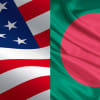Bangladesh won't seek GSP from US anymore: commerce minister
Bangladesh will not demand the restoration of the generalised system of preferences to the US anymore as Washington has added new conditions even after the country met previously set targets, Commerce Minister Tofail Ahmed said yesterday.
“I don't see any possibility of the revival of the GSP for Bangladesh by the US government. We won't demand the restoration of the GSP to the US anymore,” Ahmed told reporters at his secretariat office in Dhaka.
The GSP facility for Bangladesh was suspended in June 2013 after the Rana Plaza building collapse in April, the reasons cited being poor labour rights and unsafe working conditions in factories.
The then Obama administration gave 16 conditions to be fulfilled for regaining the trade privilege. Bangladesh fulfilled the conditions and twice submitted reports to the United States Trade Representative.
But the US has not reinstated the trade privilege; rather it always calls for further improvement of the situation. In the last two years, Bangladesh has not even applied to the USTR to have the special tariff status regained.
Ahmed said once Bangladesh graduates from the status of least developed country, it won't be granted zero-duty benefit by any country.
“So, it doesn't matter whether the US gives the duty privilege to Bangladesh or not.”
The US is the single largest export destination for Bangladesh. Of the total exports of the country, 16.78 percent goods are destined to the American markets, with garment items accounting for 95 percent of the shipment.
Bangladeshi exporters face 15.62 percent duty on the shipment of garments to the US, as it doesn't grant tariff exemption to any country on apparels.
Before the suspension of the GSP, Bangladesh used to export goods mainly tobacco, ceramics, and plastic products worth $25 million to the US a year under the GSP scheme.
The commerce minister, however, said Bangladesh would enjoy GSP plus facility to the EU markets even after its graduation from the LDC grouping.

 For all latest news, follow The Daily Star's Google News channel.
For all latest news, follow The Daily Star's Google News channel. 







Comments